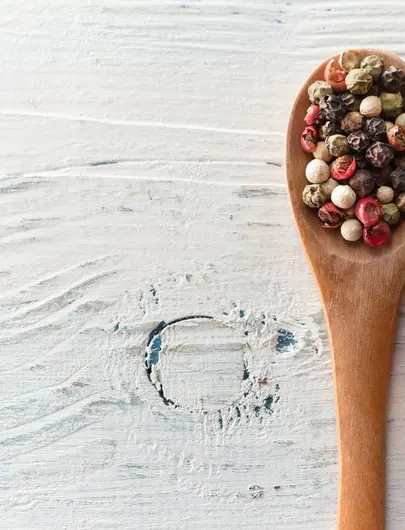Sodium, salt, what's the difference? Holistic Nutritionist Nik Toth gives us the run down.
What’s all the fuss about sodium?
You've probably heard over and over again that too much salt is bad for you. We know that high salt intake is typically associated with chronic disease such as high blood pressure and cardiovascular disease. Although too much salt can have adverse effects, this does not mean that we need to cut it out of our diet completely.
Salt, in fact is essential for life – the human body cannot function properly without it. Salt is a major component of our blood plasma, lymphatic and extracellular fluid. It also helps to carry nutrients and electrolytes to our precious cells, as well as assists in regulating our blood pressure. Our brain and muscles also rely on it, and in addition these important roles, it works in conjunction with potassium to maintain normal water balance in the body.
Difference between sodium and salt
An important thing to consider is the type and the quality of the salt you consume on the regular basis. When it comes to nutrients content, there is a big difference between common table salt and sea salt for instance.
Although sodium and salt are used interchangeably, they are not the same. Whilst most of the sodium in your diet comes from common table salt, not all salts contain sodium.
Sodium is a mineral and classified as an electrolyte that carries an electric charge. It works together with potassium, magnesium and calcium to help balance the water levels in our body and helps stimulate the nerve impulses that start muscle contractions. Sodium cannot be consumed in its pure state for human nutrition.
Salt on the other hand, it is a chemical compound that is formed when sodium bonds with the mineral chloride; resulting in sodium chloride. It is mined from naturally occurring salt deposits, then processed to achieve a fine texture we can use for seasoning. Sodium chloride is the most common table salt. It carries 40% of sodium and 60% chloride. One teaspoon provides 2,000mg of sodium.
How much should you have?
The recommended sodium consumption is about 1600mg (1 teaspoon of salt) per day with the upper limit of 2300mg, for healthy adults.
Those who are at risk of CVD should limit their intake to 1550mg per day.
Why you should be careful with you intake?
Salt not only improves flavour, but it can also serves as a preservative, which is why most packaged foods are loaded with it. The high consumption of processed and fast foods in our modern world leads to an average intake that is far more than the tolerable upper limit.
It’s no surprise that we get nearly three-quarters of our sodium intake from processed foods. This is just one of the many reasons why you should limit your consumption. The type of salt that is added to these processed foods is highly processed, and it has higher amounts of sodium than natural salts.
Seasoning Tips
The type of salt you choose to consume really does matter. Since most common table salts nowadays are far from natural, it is important that you make smart choices when it comes to seasoning your food. It is best to use pure unrefined salt, such as sea salt, which is obtained through the evaporation of seawater. Another great alternatives is pink Himalayan rock salt. Both of these are natural, minimally processed and high in trace minerals such as magnesium.
To ensure that your salt intake doesn’t exceed the recommended daily amount, incorporate fresh or dried herbs and spices in your cooking to achieve great flavours. Herbamare, which is a seasoning developed by a Swiss naturopath Alfred Vogel, is a great alternative to sodium loaded spice mixes. It is a delicious organic herb mix made according to his original recipe, created from a careful selection of fresh, organic herbs blended with natural sea salt. It definitely gets our tick!
To find out more about A.Vogle products and Herbamare visit www.avogel.com.au.

